Tips for eco-friendly travel
Tourism is definitely one of the main global industries, and it will continue to be so for many years to come. We all like to travel. Today, however, tourism puts a lot of strain on the environment and it consumes a lot of the planet's resources. The number of tourists increases dramatically with each passing year, and this is why it is so important to take steps to reduce our impact on the environment, as soon as possible.
In the last few years, you might have heard the word Ecotourism popping up, but what actually is it? It refers to a type of tourism that aims to be more responsible, ethical and conscious. Ecotourism in fact aims to respect the environment by safeguarding and minimising the exploitation of resources. Not only this, but it respects the host community, promoting the wellbeing and development of local activities. Awareness is the key to ecotourism; conscious tourists are not more intelligent, in my opinion, but more sensitive in terms of environmental protection and are not afraid to broaden their cultural and social horizons.
Ecotourism started in the early 2000s when the first hints of climate change began to appear, with efforts being made to develop more sustainable economic strategies in tourism. In 2002, major international organisations such as the United Nations World Tourism Organization (UNWTO) and the United Nations Environment Programme (UNEP) along with delegates from 132 countries gathered a summit in Quebec and issued the "Quebec Declaration on Ecotourism". The declaration provided the first definition of ecotourism and detailed the first guidelines to adopt to cause the least damage to the environment possible. Over the last decade, the need for ecotourism has risen even more, and guidelines are increasingly more precise, focussing especially on the protection of the ecosystem and above all small, local communities. Whilst the need for ecotourism affects countries all over the world, it is especially worth considering underdeveloped countries where small tribes and communities essentially live on what is offered to them by nature. These are the communities most threatened by tourism increasingly keen for an "into the wild" experience and at the mercy of powerful tourism agencies they risk losing their land, their resources or in the worst cases, their homes.
Today I would like to give you some tips to make your trip more eco-friendly, responsible, ethical and respectful of the environment and cultures. They are very simple but very effective. Remember that we have a great responsibility in our hands, but above all, only one planet.
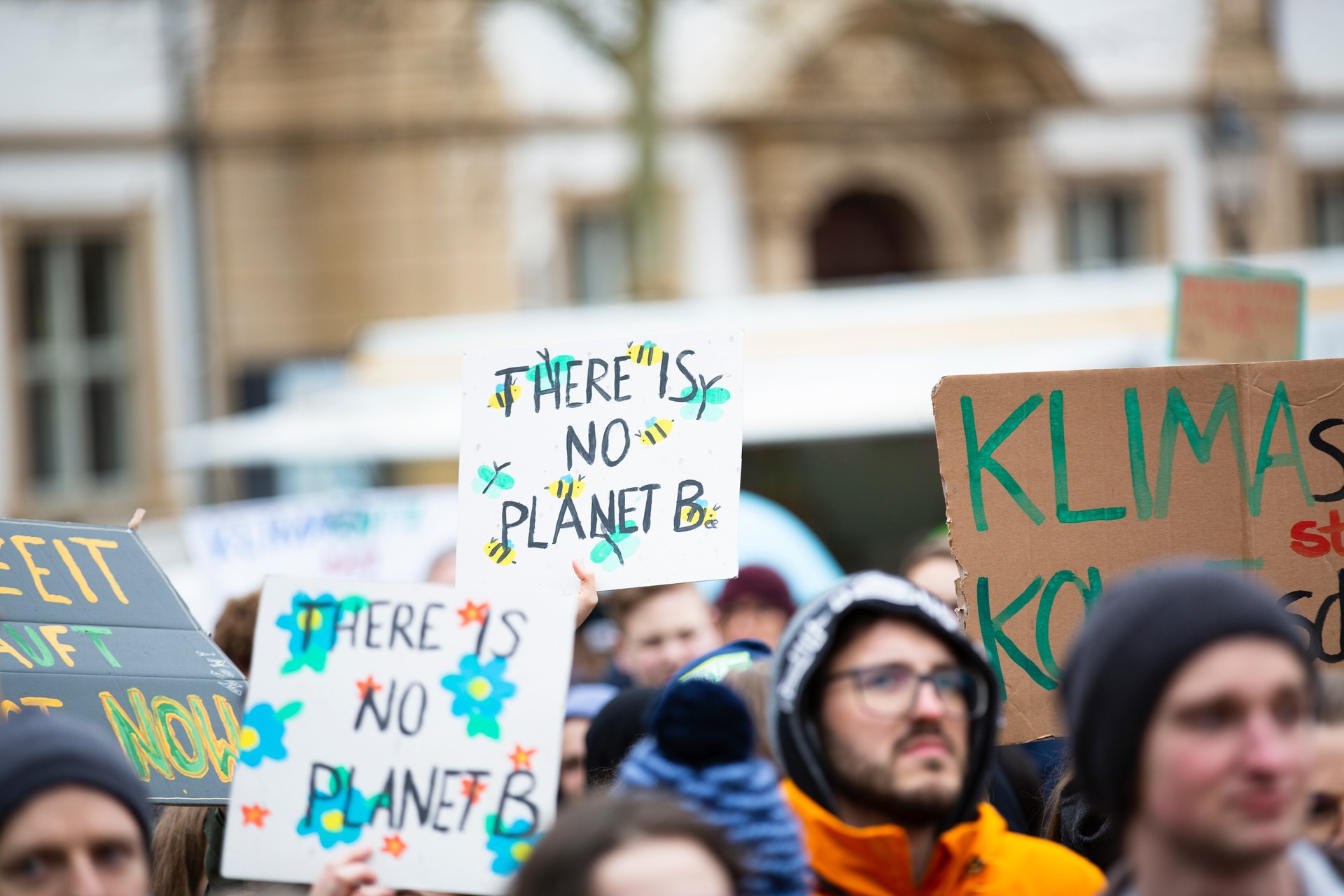
1. Reduce carbon emissions
The carbon emissions per flight are already very high, and the amount of carbon emitted is only likely to increase as numbers of travellers increase. Globally and cumulatively, aeroplanes emit more carbon dioxide than any other form of transport, after cars and SUVs.
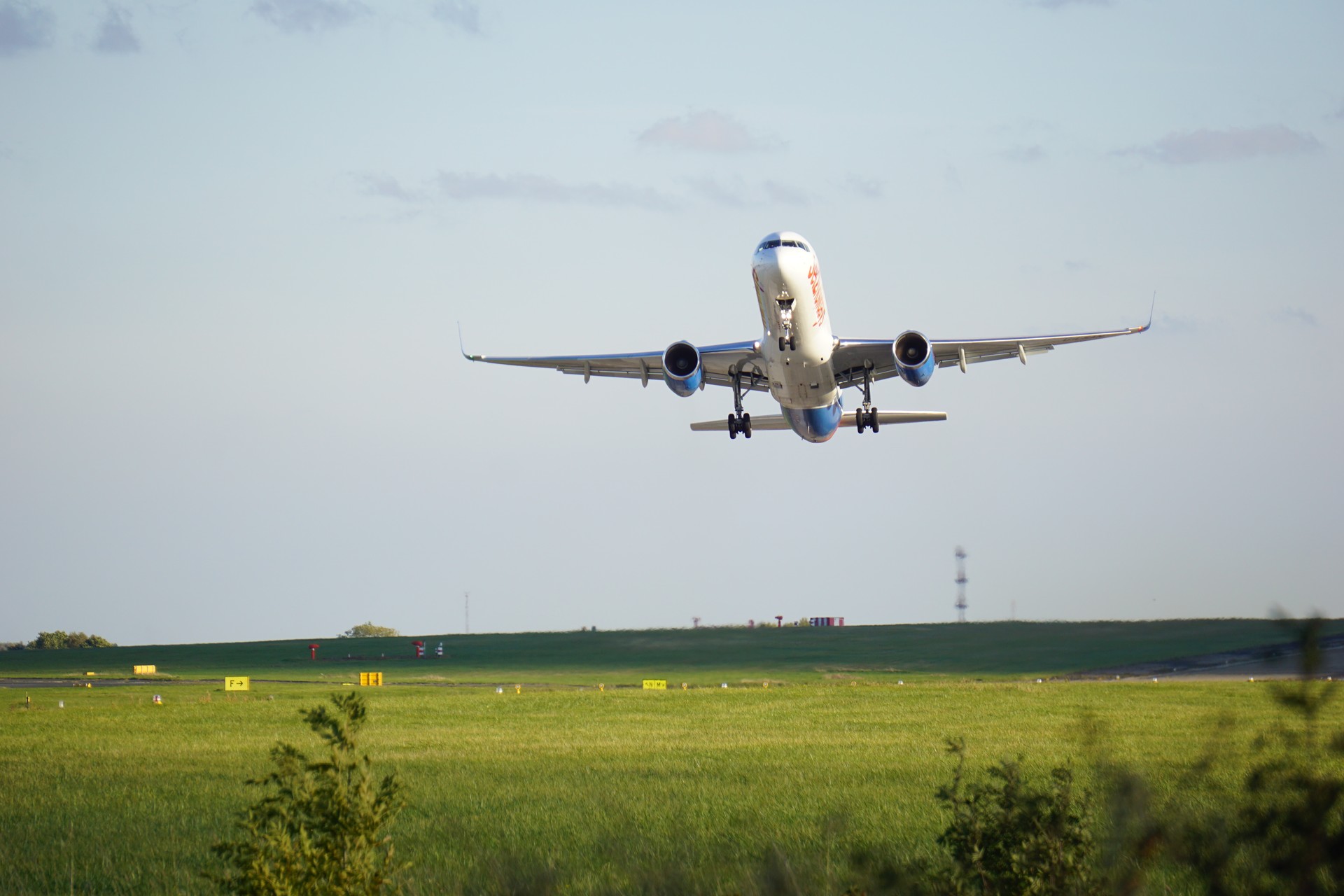
However, we can contribute to the health of the environment by choosing low-emission flights. Many airlines, at the time of booking, show you the flights with the least environmental impact and lowest CO2 emissions. This makes it much easier to book a more eco-friendly flight. In addition, to reduce your impact further it is always best to choose direct flights instead of those with stops (unless of course they are intercontinental). Once you have arrived at your destination, instead of resorting to our good friend Uber, treat yourself to public transport: metro, trains, electric buses, trams or even bicycles. If you are only covering short distances, choose to walk - what better way to see the city?!
If the opportunity arises to take a boat trip along the river, lake or even sea, take a kayak or a canoe.
It will make your trip more fun and adventurous, and leave you with some unforgettable memories.
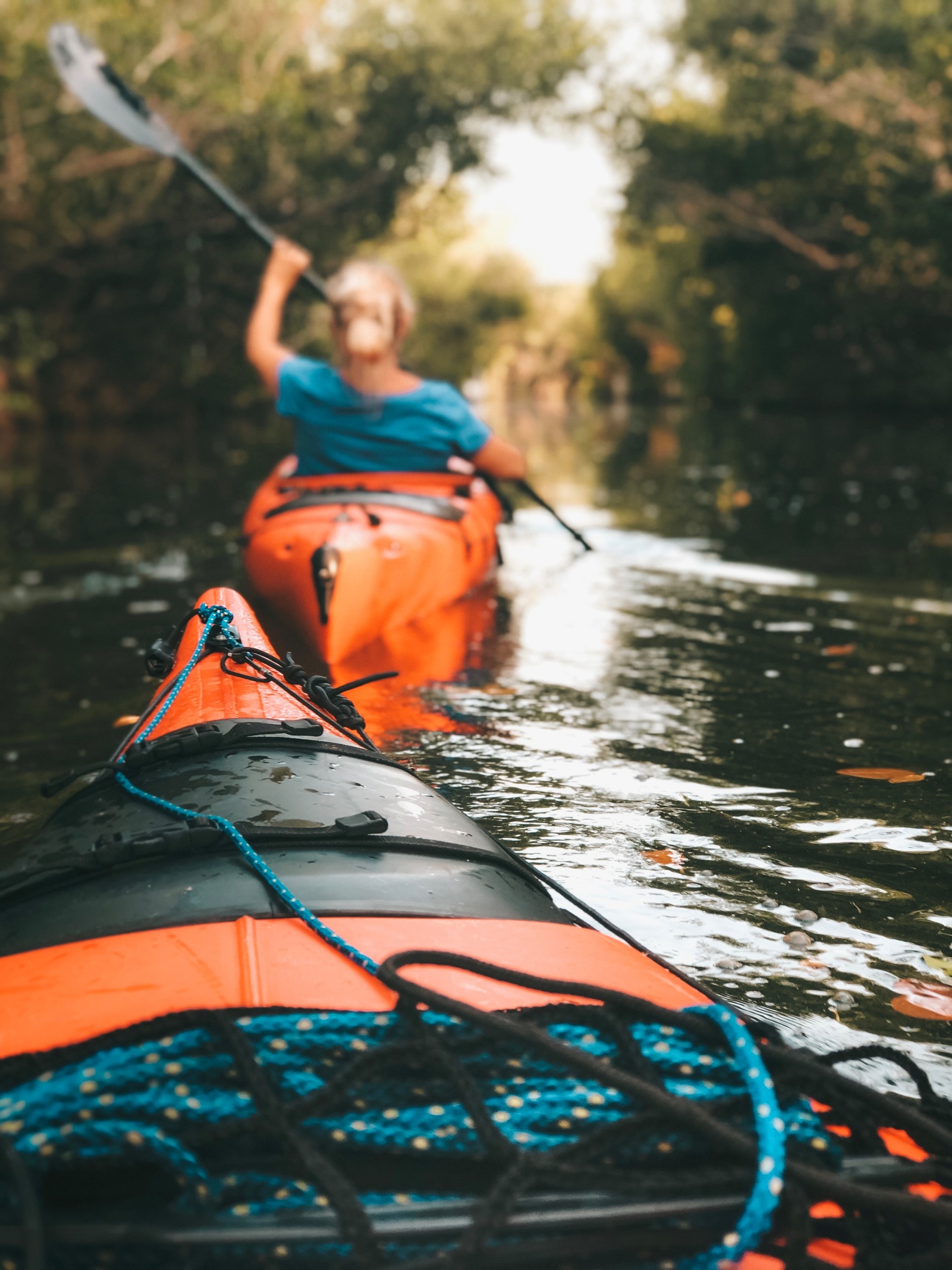
2. Support the Local Economy
We can support the local economies in many ways. Above all, I recommend that you eat local dishes in local restaurants and taverns and don't always make a beeline for your favourite fast food. Eating local allows us to broaden our gastronomic horizons as well as contribute to the economic wellbeing of the community.

When doing a bit of shopping or looking for souvenirs, make sure you look in on the local shops and not the big fashion chains which you can find in your own city.
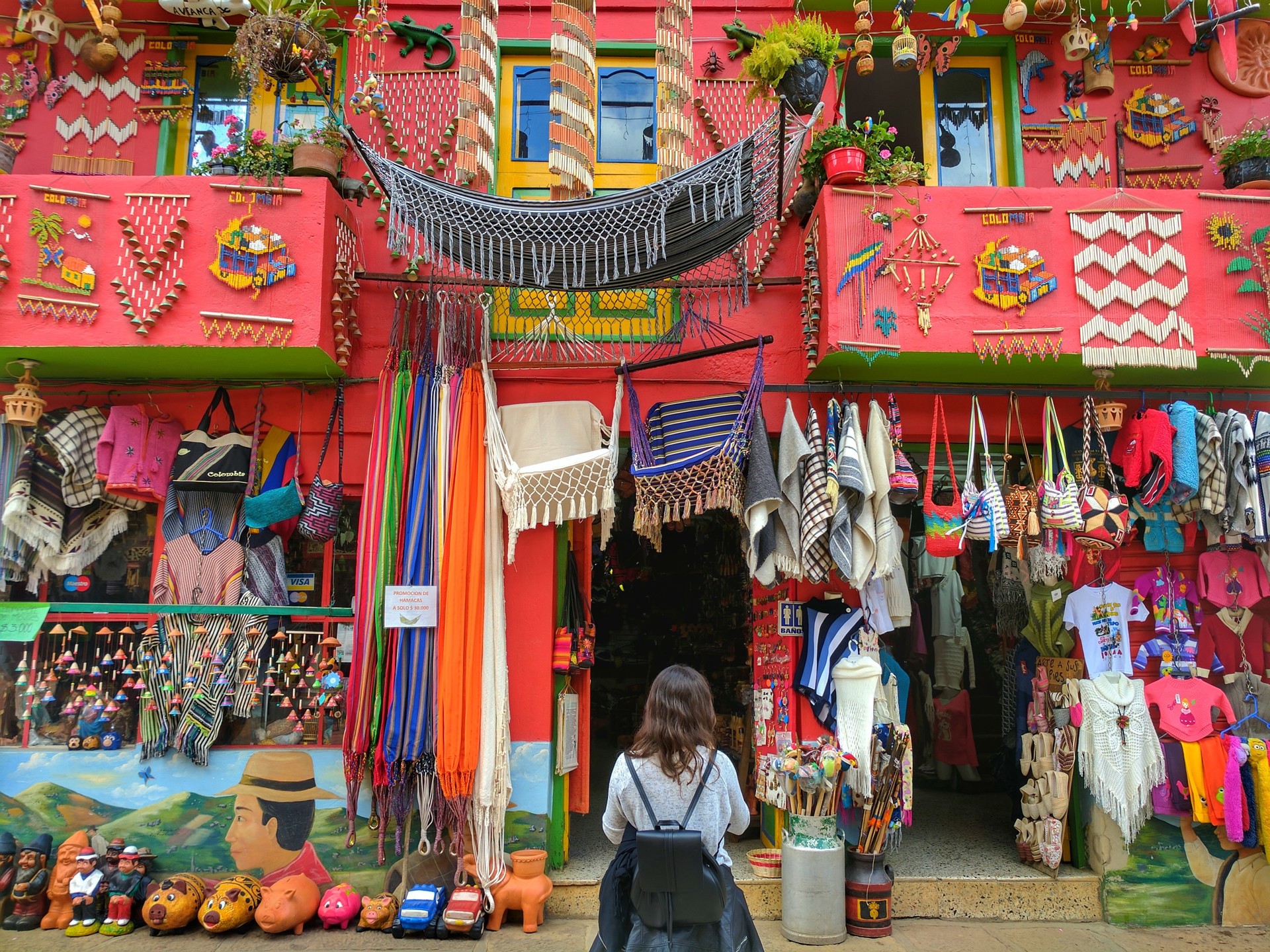
Buy yourself local crafts and not only will your have something unique that not everyone has, but you will also be contributing to the local economy and to the development of the community, however small or large.
3. Pack zero-waste
Of the items to pack in your suitcase, I definitely advise you to include those that are classified as zero-waste or plastic free. These allow you to refuse disposable plastic items definitively.
If it is easy to find drinking water in the country you are visiting, bring a reusable water bottle with you. On the other hand, if safe drinking water is hard to come by, consider a reusable water bottle with filter, or buy a large 5-6 litre bottle of water to keep in your room and refill your water bottles. Take fabric bags with you to save using plastic bags.

They don't weigh much more and you can stuff them into your suitcase so they take up very little space. Depending on your travel itinerary, you could always take aluminium straws, bamboo cutlery and a lunchbox in aluminium or light glass to eat out and about. As a ceoliac I travel with a miniature kitchen; I prepare a packed lunch and couldn't do without my glass lunch box and bamboo cutlery. Use paper napkins only if necessary; for wiping your mouth, drying your hands or blowing your nose, use washable cloth tissues. For personal care, decant your regular shampoos etc. into small bottles which can be used again, and again, and again, and think about trying other eco-friendly products such as dry shampoo, powder or solid toothpaste, solid soap... In short, products that aren't packed in plastic and which you can easily carry in hand luggage.

4. Separate your rubbish
When we are on holiday, or out of haste or negligence, we can forget to respect the rules of rubbish separation. In our rooms we often only have one rubbish bin into which we throw everything.

So, remember to separate your rubbish and throw it into the appropriate bins.
5. Choose eco-friendly accommodation
These days it is possible to choose between plenty of options using alternative energy sources and sustainable building materials, and they are getting easier to find. Solar energy, energy-saving lightbulbs and composting of food waste is becoming evermore common. If you are struggling to find somewhere suitable, book a room in a small local hotel or hostel, rather than in a large international chain.
6. Choose your activities well
We often choose fun activities for our holidays, like boat trips, safaris, dolphin watching, photos with tigers, fishing trips, skydiving... Obviously these are all fun and memorable experiences, but they have a certain negative effect on the environment and on the lives and wellbeing of the local fauna. A visit to the museum, a walk in the park or around the city are activities which have no impact on the environment and will still leave you with good memories of the place you are visiting.
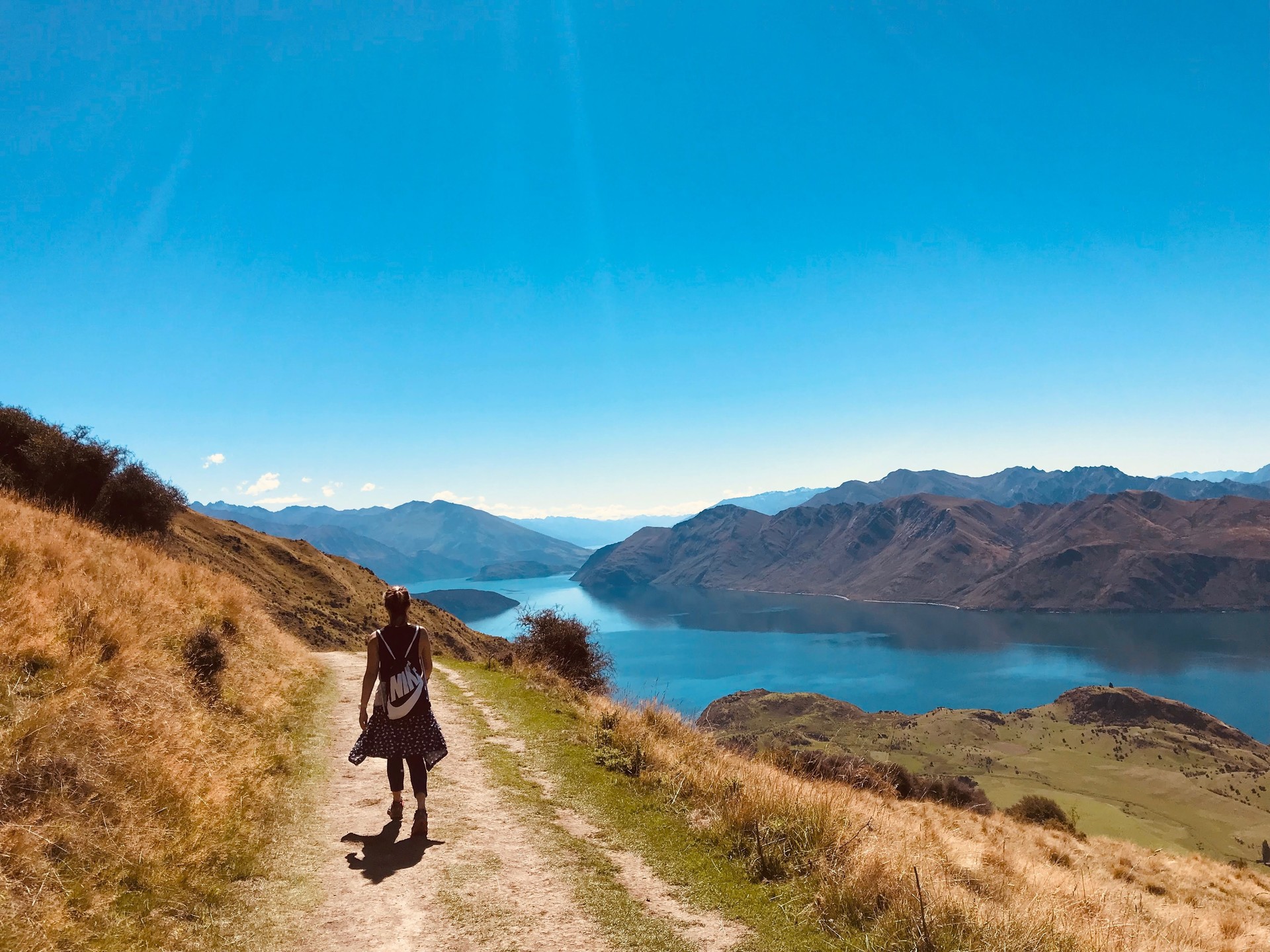
7. Visit parks, beaches and monuments responsibly
I know it happens to all of us at times when we visit a national park or protected beach. We are overcome with an uncontrollable desire to pick something up and take it home with us as a souvenir. We want to take a bit of sand, stones, shells, flowers for pressing between the pages of a book... Although the intentions are good, you are harming the environment. As well as being prohibited, you may be depriving a protected area from something which, however small it is, has a fundamental role in the ecosystem. In Italy you often hear of tourists on the famous Chia Beach in Sardinia - tourists take kilos and kilos of white sand from the protected beach. The beach is in fact the result of erosion which has taken place over millennia, and to take even a bit of sand could ultimately see the disappearance of the entire beach.
It is a similar story in the city of Pompeii, where many people have taken stones, pebbles and even pieces of frescos and mosaic tiles. Whilst this may not have an environmental impact in itself, it nevertheless shows a lack of stewardship, care and respect of the host population, the place and its history and from an ethical viewpoint is decidedly immoral.
Furthermore, the famous open-air picnic is lovely, but how much more beautiful is it to picnic on a clean green space or spotless beach, a park without rubbish littering the ground?
So I ask you to leave no trace, taking your bags, leftovers and other rubbish away with you.
8. Don't follow the crowd
When we visit major European capitals it is worth creating a travel itinerary that stands out from the rest. In cities such as London, Rome, Paris and Barcelona, visitors often follow the "tourist trail", flocking to attractions that are visited by absolutely everyone and usually focusing on the city centre.
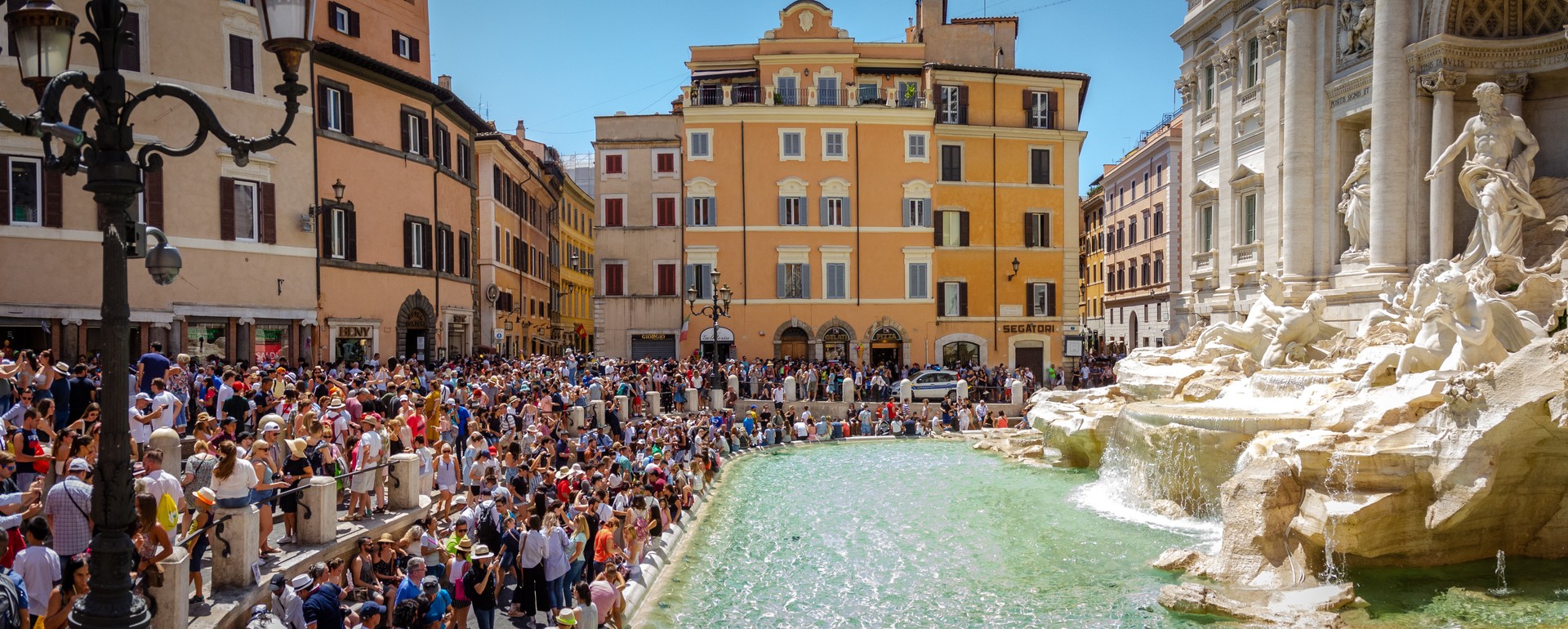
Wouldn't it be better to visit the lesser-known but still interesting places, unique to the city? Distributing tourists' interests to include different attractions is a great way to avoid the "tourist traps", usually found in the centres, and instead support the diffusion of income to outlying areas. This makes it possible to contribute to the city's economy as a whole, and not just concentrate it in one place.
A good way to explore these lesser-known parts of a city is to take advantage of a free tour, which are guided by young people who are not affiliated to a large company. They take you around different and fascinating parts of the city and show you places you might not have come across on your own. Depending on the tour you choose, you can do a wine or food tour, get involved in an experience or with local artisans. You pay your guide what you think the tour was worth.
9. Use your smartphone
Our smartphones are our loyal travel companions, if not life companions. Smartphones are incredibly useful from the point of view of not carrying paper tickets: flight boarding passes, train tickets, maps, entrance tickets can all be stored on your phone, significantly reducing your paper usage. Obviously, greater use of your phone means you may also have to carry a portable charger with you and recharge both overnight. Opt for a solar-powered power bank, which reduces your energy consumption from the mains as well as providing you with energy wherever you are.
No matter how simple these tips seem, it is worth remembering that they help to respect every inhabitant on Earth, and together they can really help to improve our planet and make a big difference.
Photo gallery
Content available in other languages
- Italiano: Idee per un viaggio più eco-friendly
- Español: Ideas para un viaje más eco-friendly
Want to have your own Erasmus blog?
If you are experiencing living abroad, you're an avid traveller or want to promote the city where you live... create your own blog and share your adventures!
I want to create my Erasmus blog! →














Comments (0 comments)